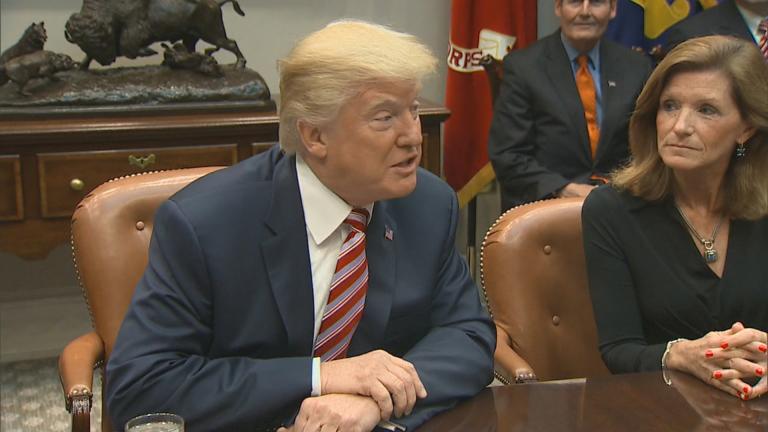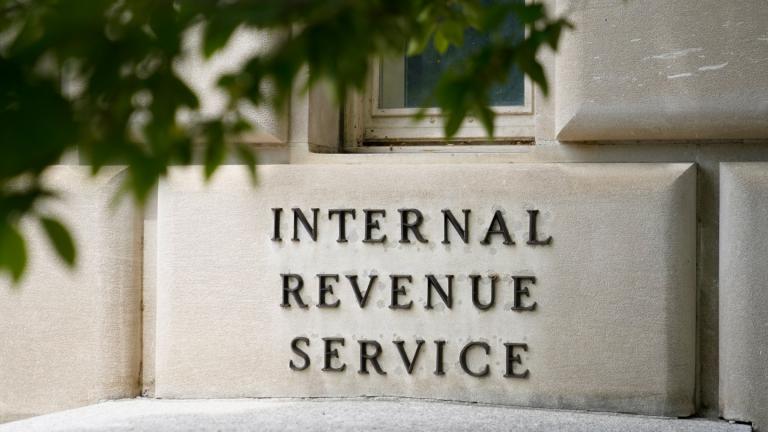Congress has passed the most significant tax code reform since 1986. The lack of public hearings on the sweeping legislation, which passed in record time, has caused widespread confusion over the tax bill.
The House approved the bill by a 227-203 vote with no Democratic representatives voting for the bill and 12 Republicans voting against it. The Senate passed the bill 51-48 along party lines with one Republican senator, John McCain, not voting. (Prior to the vote, Sen. McCain said he would not be present for the vote and would be in Arizona.)
Because of minor changes in the bill made by the Senate, the House was required to pass the bill again before sending it to the president. The House passed the bill with 224-201 vote on Wednesday with no Democratic support and again opposed by 12 Republicans.
The law permanently cuts the tax rate for businesses from 35 percent to 21 percent, but the tax cuts for individuals and families expire in 2026.
There are still seven tax brackets but the rates have changed. Starting in 2018, the rates will be 10 percent, 12 percent, 22 percent, 24 percent, 32 percent, 35 percent and 37 percent.
The current $1,000 tax deduction per child doubles to $2,000. Under the new law, deductions for state, local and property taxes will be capped at $10,000. (They were previously uncapped.) The personal exemption of $4,050 for an individual, his or her spouse and dependents has been eliminated.
However, the standard deduction for single filers has increased from $6,350 to $12,000 and for married couples filing jointly, it's nearly doubled from $12,700 to $24,000. That means that the number of filers who itemize their deductions will shrink.
Medical expenses for 2018 and 2019 are deductible if they exceed 7.5 percent of an individual’s adjusted gross income. In 2020, medical expenses must exceed 10 percent of adjusted gross income to be deductible.
A poll conducted by Deloitte, one of the world’s largest tax and accounting firms, found 41 percent of respondents were most concerned or interested in the loss of itemized deductions. (The poll was conducted Dec. 18 and received more than 5,600 votes.)
There are ways to take advantage of some of the old tax deductions before the end of 2017, including taking the mortgage interest deduction now.
A flood of taxpayers have rushed to the Cook County treasurer’s office to prepay their March 2018 property tax bills. So far this year 12,000 property owners have prepaid compared to 1,775 last year.
Federal income taxes for 2018 cannot be prepaid, however.
The new law also eliminates the tax preparation deduction, meaning you can no longer deduct your accountant’s bill or tax prep software.
Alimony payments are no longer deductible for the person writing the checks beginning in 2019 under new divorce settlements.
The estate tax (or death tax) is being phased out. The existing individual exemption doubles from $5.5 million to $11.2 million. For married couples the exemption will be $22.4 million.
Under the new law, parents can now use 529 college savings plans for their children’s K-12 education. Previously, 529 plans could be used only to cover costs for college.
Individuals who purchase an electric car can still claim a tax credit of up to $7,500. But that applies to only the first 200,000 electric cars sold by each automaker.
According to the nonpartisan Joint Committee on Taxation, the new tax code could increase the U.S. deficit by $1.46 trillion over the next decade.
Joining host Phil Ponce to talk about the changes to the tax code are Gail MarksJarvis, the “Money” and personal finance columnist for Reuters, and Mark Luscombe, a CPA and a principal federal tax analyst at Wolters Kluwer Tax and Accounting firm. He is a tax attorney and he co-authors a monthly tax strategies column for Accounting Today and also authors a monthly tax trends column for TAXES magazine.
Related stories:
 How the Federal Tax Overhaul Could Affect You
How the Federal Tax Overhaul Could Affect You
Dec. 20: One change expected to hit individuals in states like Illinois particularly hard: A $10,000 limit on the amount of state and local taxes that can be deducted from your federal taxes. Previously, that deduction was uncapped.
 How Will GOP Tax Plan Affect the Economy and Americans’ Wallets?
How Will GOP Tax Plan Affect the Economy and Americans’ Wallets?
Dec. 4: Republicans in Congress have successfully passed tax legislation. Will a corporate-friendly tax overhaul help spur job and wage growth, or merely help the rich get richer?
 Roskam on GOP Tax Bill: ‘Best Way to Grow Economy’
Roskam on GOP Tax Bill: ‘Best Way to Grow Economy’
Nov. 20: Illinois Republican Congressman Peter Roskam says that criticisms of the recently passed House GOP tax cut bill are “hyperbole.”







